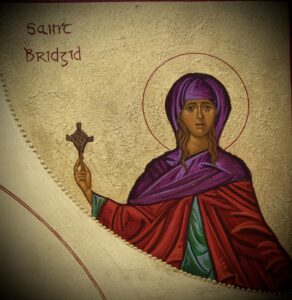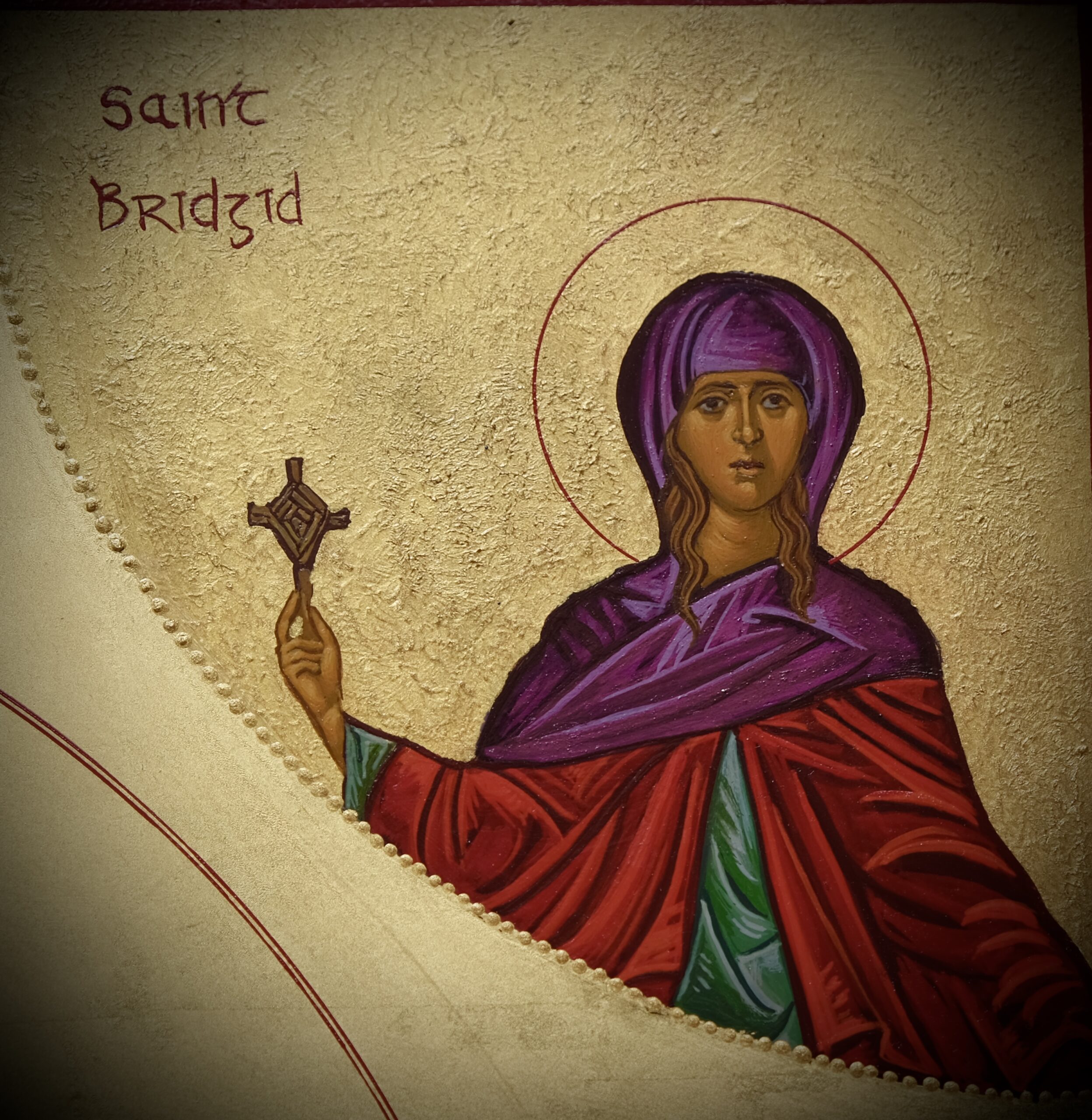Homily

Jesus encourages us in the gospel of Saint Luke today to “Be compassionate as your Father is compassionate”. In the first reading Job reflects on his life and recalls that he has tried to do God’s will by being generous and compassionate to the poor and afflicted. These qualities were reflected in the life and ministry of Saint Brigid, our national and diocesan patron saint, whose feast we celebrate today.
As we gather at the Shrine of Saint Brigid in Faughart Co Louth, we are honoured to be in her birthplace to celebrate the beginning of the 1500thanniversary of her remarkable life. Saint Brigid’s example of selfless giving and love for others especially the poor, the sick and the vulnerable did much to firmly establish the Christian faith in this land.
As Saint Brigid grew to maturity here in Faughart as this island was going through a period of rapid religious and cultural transition. The Christian faith so recently established by Saint Patrick was taking hold and freeing the Irish people from the dark and deadening influence of paganism. The pagan beliefs that had existed in Ireland before Saint Patrick consisted of a mix of superstition and magic which included the sacrifice of children, human trafficking, the neglect of the poor and vulnerable and the widespread ill-treatment of women. Saint Patrick was faced with real and tangible evil that he had to overcome. The snakes he drove from Ireland are simply a symbolic representation of the demonic forces that he did much to repel.
Saint Brigid was motivated at a young age by this radical message of Jesus and the life-giving and progressive power of the Christian faith. From her very earliest days here in Faughart, Brigid displayed the Christian qualities that were very much at odds with the greed and self-centeredness in the society around her. That inner desire to be compassionate and charitable was something Brigid carried with her all her life. Indeed, her father Dubhthach, a pagan, was going to sell her into slavery because he feared she would make him destitute so great was her generosity.
There is no doubt that Brigid was a woman of strength, courage and deep faith who was so impressive and strong that she acquired the authority and breath of influence that was almost unheard of for a woman at that time. She gained that authority and influence because of her fearlessness and her willingness to champion the cause of those who had no voice and to tackle the injustices that existed in the society in which she lived. The example of Saint Brigid highlights the need for the resurgence today of a spirituality and faith based on love and compassion in a world that is so self-centered and materialistic.
The qualities that made Saint Brigid great have been found in so many women down through the centuries. Some of these women entered religious life and were extremely dedicated to their vocation and mission. The vast majority, however, have been women who in their homes, workplaces and communities helped to nurture and to spread the faith. Without them the Church would have found it hard to survive and flourish. Their contribution is incalculable and the gratitude we owe them immense.
Time and again in the gospel we see that Jesus needed the cooperation of women, to carry out his mission. They supported him at every moment of his public ministry. They stood by him as he died on the cross, they received his lifeless body into their arms, and they were the first to witness and herald his resurrection from the dead.
Today at this celebration of the Eucharist many of the liturgical tasks such as serving, music ministry, reading, presenting symbols and gifts, are carried out by women, especially the twenty young women who join us from secondary schools in Dundalk. Many of them are the same age that Brigid was when she answered her call to serve the Lord and spread the light of his gospel message through prayer and charity. The vibrancy of our faith and Church in the future depends on the continued involvement of women such as these and in order for that to happen we must fully acknowledge the gifts and graces that women bring to the life of the Church.
I know from my own experience of thirty-five years in ministry that little could be achieved in a parish or diocese without the support and help of women. Women have the essential ability to see a need and to respond, as Saint Brigid did, with concern, compassion, and care.
Pope Francis has recognized this ability and, rather than just praising women in a generic way, he has brought many women into the highest governance roles in the Vatican. The synodal process, that is at the heart of the Church’s life, is presently reflecting on how to establish a more equitable and realistic role for women in the future.
Saint Brigid’s example and patronage gives us hope that the renewed Church that we are building to meet the challenges of the 21st century will be open to engaging with all and bringing people into a truly transformative encounter with Christ. Saint Brigid touched the hearts of so many people through the depth of her faith, a faith that was evident in her care and concern for others. May we as a Church be that beacon of light again for the world through our example of compassion and love.




You must be logged in to post a comment.